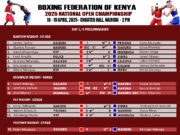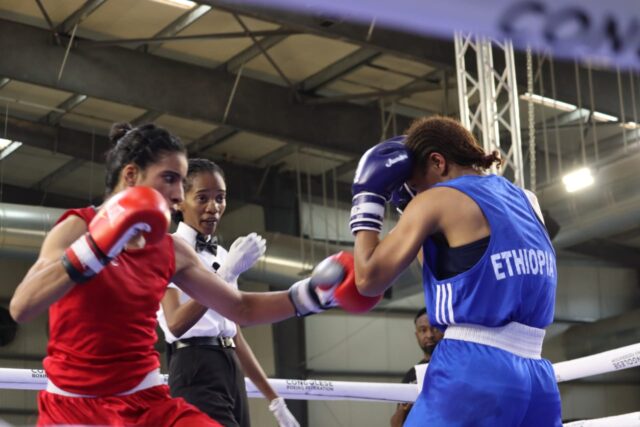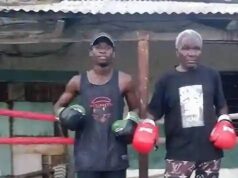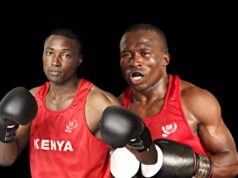Namibia’s Trevina Shivolo shares her perspective after officiating in the AFBC African Men’s and Women’s Boxing Championships in DR Congo for the first time this year in October
Walking into the arena, I felt a mix of excitement and nerves. The atmosphere was electric, with boxers representing various countries and passionate fans filling the stands. Being one of the few female officials at such a significant event, I was proud to contribute to the growing recognition of women in sports, especially in officiating roles.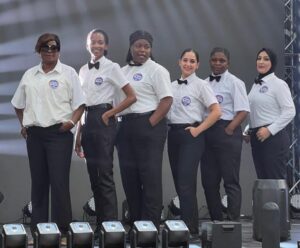
Throughout the tournament, I had the opportunity to work with highly skilled boxers from different backgrounds, each bringing their unique style and intensity to the ring. Ensuring fairness and maintaining the integrity of the matches were my top priorities. I had to stay focused and alert, especially as the stakes were high in each bout.
Communication with fellow officials was crucial; we had to be a cohesive team to make accurate calls. I learned a lot from observing my more experienced colleagues, who guided me and shared invaluable insights on handling challenging situations, whether it was about scoring or dealing with fighter protests.
One of the most rewarding aspects was witnessing the dedication and passion of the athletes. Many had overcome significant challenges to compete at this level, and their determination inspired me. I felt a sense of fulfillment knowing I played a role in their journey.
Overall, officiating at the Africa Elite Boxing Championship was not just about enforcing the rules; it was about being part of a vibrant community that celebrates sportsmanship and discipline. This experience solidified my commitment to advancing in this field and opened doors for future opportunities in international officiating.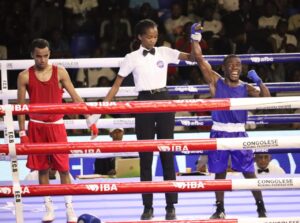
Officiating at a major tournament like the Africa Elite Boxing Championship in Kinshasa can differ significantly from officiating local events in Namibia in several ways:
1. Level of Competition: The Africa Elite Boxing Championship will feature top fighters from various countries, many of whom may have higher levels of skill and experience compared to local boxers. This higher level of competition can lead to more complex and demanding officiating scenarios.
2. Rules and Regulations: While the basic rules of boxing are the same, larger tournaments may have more stringent regulations and protocols. This can involve stricter adherence to officiating guidelines, judging criteria, and safety protocols.
3. Pressure and Visibility : Officiating at an international event brings more scrutiny from media, officials, and fans. The pressure to make accurate calls increases significantly as the stakes are higher, and the matches might have greater consequences for the boxers’ careers.
4. Diversity of Styles: You may encounter a wider variety of boxing styles and techniques at a national or continental level, as athletes come from diverse backgrounds and training environments. This requires officials to be adaptable and knowledgeable about different boxing styles.
5. Experience and Training: Officiating at a major tournament often requires more experience and sometimes specific training in handling higher-level competitions. There may also be workshops or briefs provided to officials prior to the tournament.
6. Team Environment: In major tournaments, officiating may take place in a more structured team environment, where officials have designated roles and responsibilities. In local events, officials might have to take on multiple roles or adapt to various situations more fluidly.
7. Travel and Logistics: Officiating in a large tournament often involves travel, coordination with international officials, and navigating the logistics of being in a foreign country. This can add a layer of complexity to the role.
8. Outcome Impact: The outcomes of matches at a major championship can have wider implications, such as qualification for the Olympics or world championships, which adds an extra level of importance to every decision made by officials.
Overall, while the fundamental skills of officiating remain the same, the context and environment of high-level tournaments present unique challenges and differences compared to local officiating.










